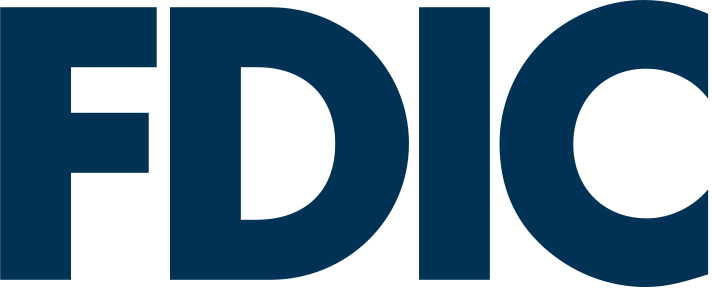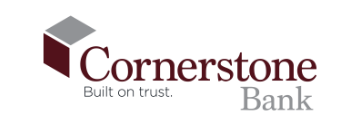It may not be at the top of their priority list, but you know how important it is for your college-age kids to start off on the right track for building wealth. You’ve earned the wisdom to know that having all the time in the world might feel like a license to procrastinate, but actually means there’s ample time for them to save, strategize and make their money work for them.
Here are some top tips for helping your students go from dorms to dollars and get started on their wealth-building journey.
What Does Building Wealth Mean?
Let’s start with a fundamental definition of wealth. When we talk about building wealth, we’re essentially talking about the process of increasing the value of your assets while reducing your debt. In building wealth, the ultimate goal is to get to a state of financial freedom in which you have enough resources to maintain your desired way of life without being fully dependent on employment. This can manifest in early retirement, switching to part-time employment, or just reaching the point at which either is a realistic option.
The best way to build wealth is to have plenty of time for low- or no-risk investments to do the work for you. That’s why it’s such a wise move to get your kids started on the path in early adulthood.
Setting Top-Level Goals
It’s well worth sitting down with your student to identify some goals. Explain that while these can always shift over time, it’s helpful to start somewhere. Do they imagine themselves buying a home someday? Having kids of their own? Traveling regularly? Retiring early?
If they hope to attain financial freedom by age 50, for example, how much will they need to have saved? How about if they hope to buy a home by age 30? What is the annual income they will need to earn to achieve those goals? Once you have some of those questions answered, our online calculator can help with some of these ballpark estimates. You can then use these calculations to inform their strategies for earnings, savings, investments, and lifestyle.
Debt 101
It’s important to talk with your child about debt. If they’re taking on student debt for their college career, that’s the perfect icebreaker. It’s worth comparing the benefits of credit cards for building credit with the risks of using them to finance purchases beyond their means. Explain the difference between taking on debt for an investment likely to appreciate in value—student debt that can result in better-paying employment, for example, or a mortgage with a low monthly payment and competitive interest rate—versus debt taken on to live beyond one’s means. Explain that while it is fairly common in early adulthood to carry more debt than assets, this is a balance to be shifted strategically and methodically over time, though careful budgeting, saving, and low-risk investment.
Smart Savings, Wise Investments and Checking RITE
The most important and most effective means to wealth are savings and low-risk investment along with a high-benefits checking account. Automating even a small percentage of income to be deposited into savings accounts, money market accounts, and retirement accounts can be a set-it-and-forget-it affair. Doing so enables students to build a budget around their remaining income while their investments start working for them behind the scenes.
Here are some of the best products available to your student to set them on the path to building wealth:
Choosing the RITE Checking Account
For everyday money management, you’ll want to set your student up with a checking account that offers services and rewards that contribute to their financial well-being.
The Cornerstone Bank RITE Student Checking Account offers benefits and services that are designed specifically for young adults beginning their journey to financial independence.1 Free until age 262, RITE Student Checking offers benefits including:
- Free ATMs nationwide*
- Round up to save with Making Cents4
- Early Pay with direct deposit
- No monthly maintenance service charge2
- Access to Cornerstone Plus benefits which provide perks like roadside assistance
- $25 minimum opening deposit and no minimum monthly balance requirement5
- Online and mobile banking3, including mobile deposits, bill pay, and Zelle®
- Rewards for everyday purchases with uChoose Rewards®—redeem your points for gift cards, merchandise, travel experiences, and more!6[1]
- Earn 1 point6 for every $1 spent
Certificates of Deposit (CDs)
Certificates of deposit, or CDs, often offer higher interest rates than other types of accounts, but unlike a savings account, a CD “locks” your money in place for a set term. CDs are great options for savings, as long as you can be fairly sure you will not need access to your money before the account’s date of maturity. Early withdrawals may incur a penalty.
Cornerstone CD features include:
- $500 minimum deposit to open
- No monthly service charge
- Interest earned may be withdrawn at any time without penalty
- At maturity, funds may be added, terms may be changed, and withdrawals are permitted
- As with most CDs, there will be a penalty for early withdrawal
- Free telephone and internet banking (inquiries only)
- Fully insured by a combination of the FDIC and the DIF
Savings Accounts
Savings accounts pay interest on your deposits without tying your money up the way a CD or retirement account will. Helping your student develop the habit of depositing even a small percentage of their income into a savings account will set them up well for the long term.
A Cornerstone Bank Statement Savings Account offers security, liquidity, and access. With just a $10 minimum to open, your student will receive eStatements, an ATM card (if desired), and electronic transfer capabilities.
Cornerstone also offers the Making Cents program—with a RITE Student Checking Account, your student can have purchases automatically rounded up to the nearest dollar and we will transfer the extra cents from their checking account to their savings account.4
Money Market Accounts
Another great option for establishing low-risk, steady savings is a money market account. In exchange for a higher interest rate than other savings accounts, a money market account will typically place a limit on the number of transactions you can make by electronic transfer, and will often have a minimum deposit requirement. Cornerstone Bank does not limit the number of transactions on money market accounts. A money market account is considered an investment as the money deposited is invested by your bank in mutual funds.
The Personal Money Market Account from Cornerstone offers higher rates for higher balances, with just $25 required to open. There are no monthly fees and no minimum daily balance5, and your student can receive an ATM card and have electronic transfer capabilities.
If your student has savings to begin with, they may wish to open a Cornerstone Premier Money Market Account. With a $1,000 minimum to open, this account allows you to keep their money liquid while enjoying the benefits of higher interest rates. The higher their balance, the more money they will earn. As with the Personal Money Market Account, there are no monthly fees, no minimum daily balance5, and ATM card and electronic transfer capabilities are available.
Retirement Accounts
Retirement is probably the last thing on your student’s mind. But opening a retirement account in early adulthood and having a small percentage of income automatically deposited gets them on track for the kind of long-term earnings for which retirement accounts are designed.
A Cornerstone Individual Retirement Account (IRA) allows students to save for retirement by receiving a higher rate of interest with the safety of FDIC and DIF insurance. There are two kinds of IRA plans to choose from: Traditional IRA and Roth IRA. There are differences between the two, so it’s a good idea to consult with a tax advisor to determine the best plan for your student.
Choosing the Right Bank
You’ll want to set your student up with the right banking partner to make sure they are getting the service and care they need as they embark on their wealth-building journey. Cornerstone Bank is a local, community bank that delivers the kind of personal touch that only a local bank can offer. You can rest assured that with Cornerstone, your student will receive the highest quality, personalized service. We will work with them to help design their wealth-building strategy and provide ongoing guidance to make sure they remain on track.
Reach out to us today and we’ll be happy to meet with you and your student to talk about options and help you get them started on their life-long path to financial security and independence, from dorms to dollars.
*Through full ATM surcharge reimbursements
1 Applicant must be an active student aged 14–25. Students aged 14-17 require a parent or guardian as a joint account owner.
2 No monthly maintenance service charge until age 26; at the attainment of age 26, a $6 monthly maintenance service charge will be assessed.
3 Minors (14-17) have access to view transactions, mobile deposits, and transfers within Cornerstone Bank. When the minor reaches the age of 18, they will have access to all Online Banking features.
4 To enroll in Making Cents, you must be enrolled in online banking, have an eligible Cornerstone Bank checking account, and an eligible Cornerstone Bank savings account. Eligible checking accounts: RITE Premium, RITE Extra, RITE Student, Basic, and Workplace checking. Eligible savings accounts: Statement Savings and Moola Savings. Upon enrollment, we will round up your purchases to the nearest dollar and transfer the difference from your checking account to your savings account. Purchases will not be rounded up if it makes your account reach zero or go into the negative. If a debit card purchase is subsequently reversed, the corresponding round-up transfer will remain in the designated savings account.
5If account balance is $0.00 or less for 60 consecutive days, the account will be closed.
6 Participating retailers are subject to change. Points become available in the month after they are earned and expire 1,096 days from the end of the month in which they are posted.



 Translate
Translate